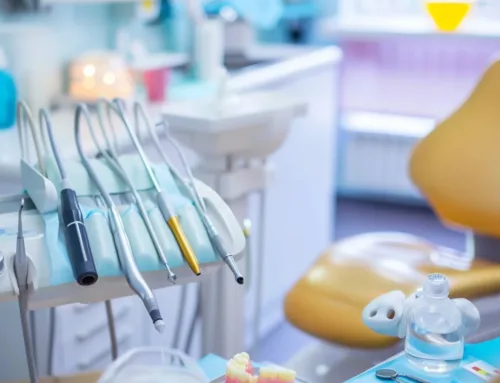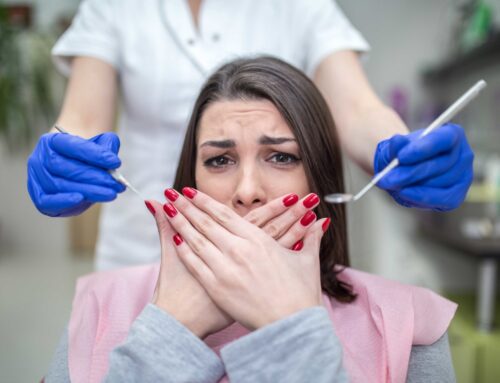Treatments and Solutions for Bad Breath and Halitosis
We all have bad breath from time to time. Whether it’s the dreaded morning breath or simply the result of a garlic-infused meal, or too much coffee – none of us are immune to it. However, when it becomes an ongoing problem, recurring regularly and seemingly without any apparent cause, then bad breath can have a big impact on our lives.
However, there are many things that you can do if you find yourself in the situation of having frequent bad breath, or halitosis, as it is also known. Often the solution can come from a change in diet or oral care habits, but sometimes a professional treatment by a dentist is required. The first step is to understand the potential causes and identifying the root of the problem.
In this article, we’ll be providing details on why bad breath occurs, and what may be causing it to be a frequent or constant problem. We will also take a look at different options that are available to treat bad breath and help prevent it from recurring. Let’s get started by providing a clearer understanding of bad breath and halitosis.
What’s the Difference Between Bad Breath and Halitosis?
Many of you may be wondering what the difference is between bad breath and halitosis. While often times the two terms are used interchangeably, there are some technical differences between their correct meaning.
Bad breath is generally referred to any unpleasant odour that is present in the breath, regardless of the frequency of its occurrence or the root cause of the bad breath. For example, after having a hamburger with garlic pickles and onions, you may experience lingering odours in your mouth as a result that could be described as bad breath.
Halitosis is different in that it refers to an ongoing problem, either constant or frequently recurring, that causes the breath to have an unpleasant odour and does not always correlate to an easily identifiable or obvious cause. In most cases, halitosis has an underlying condition that produces the symptom of chronic bad breath.
In simplest terms, all halitosis can be categorized as bad breath, but not all bad breath can be categorized as halitosis.
Understanding the Effects of Chronic Bad Breath
While we’ve all had occasions where morning breath or a strong-smelling meal have left us in an embarrassing breath situation, the effects of chronic bad breath can have long-term effects on our self-confidence. This discomfort and heightened sense of self-consciousness can build over time, and lead to more serious cases of anxiety in some patients.
It’s important to not ignore these types of problems if they become unmanageable on your own. When it comes to frequent bad breath and halitosis, your dentist can diagnose the underlying cause and recommend the best course of treatment for you. There’s no reason to wait or put off asking your dentist about it, as many of the causes are easily treatable and can be prevented from occurring again in the future.
What are the Causes?
The potential causes of bad breath range from infrequent or ineffective tooth brushing, to smoking and using tobacco products, to more serious causes such as gum disease or tooth decay. Before jumping to any conclusions, however, it’s wise to start ruling out potential causes that may be related to obvious aspects of your diet or lifestyle.
For starters, think about your day to day routines and identify any changes or differences that may have occurred lately. New types of foods that you’ve been eating more often recently could be causing changes in your breath. Foods such as garlic, onions, or hot and spicy seasonings can have lingering effects on your breath, even after brushing your teeth.
Also, consider all the parts of your oral care habits and think about the effectiveness of your brushing method, the frequency that you floss, and other things you do to help clean your mouth and teeth. If you’ve been skipping something recently that you used to do regularly, that may be part of the problem.
Constant bad breath may also be related to other dental health problems such as tooth decay, plaque and tartar build-up, gum disease, infections, injuries or wounds in the mouth. Bad breath is also a symptom of many gastrointestinal afflictions such as indigestion or acid reflux. It can also be an indicator of other health conditions and diseases that can impact the metabolism of the body leading to odours in the breath.
There are also certain medications that can have side effects including dry mouth, which is one of the most common causes of bad breath. When your mouth doesn’t produce an adequate amount of saliva to help wash away bacteria and food particles, they can build up, and the result is bad breath.
Treating Bad Breath & Halitosis
If you’re unable to rule out the cause of bad breath as simply being the result of a strong-flavoured meal or a lapse in oral hygiene habits, it’s time to schedule an appointment with your dentist. They will perform a thorough examination and determine what the cause of the bad breath may be, and then make a recommendation on how best to treat the condition.
You will be provided tips and advice on how to perform more effective self-management at home, including brushing techniques, flossing methods, and oral rinse recommendations that can help prevent bad breath.
A full hygiene treatment and complete cleaning session of your teeth will drastically reduce the amount of odour causing bacteria, plaque, and tartar on your teeth and in your mouth. This is one of the most common ways to help treat frequent instances of bad breath.
In the event that your bad breath is the result of a dental health concern such as gum disease, infection, or other condition, your dentist will treat the condition appropriately. Having these conditions treated will improve your overall health and well-being, as well as treat the symptoms of bad breath and halitosis.
For bad breath caused by medications, your dentist will likely suggest alternatives or refer you back to your doctor to obtain other options for medication that are less likely to cause dry mouth. In the case that no other option is available for your particular medication, your dentist can provide suggestions on how to mitigate dry mouth and provide relief.
Get Rid of Bad Breath & Breathe Easy
If you or someone you know is troubled by constantly dealing with bad breath, it’s important to know that there are options available to help treat the condition and minimize the effects. In many cases, bad breath is entirely preventable and can be easily remedied, so speak with your dentist and have them provide recommendations for your particular situation.
Living with bad breath can be extremely frustrating, so be sure to get the help you or your loved ones need in order to remedy the situation. The solution may be a simple one and, if the underlying cause is a more serious medical or dental condition, then early identification and treatment is the best course of action.
If you need advice on what to do about chronic bad breath or halitosis, contact the team here at Georgian Dental® in Barrie and Orillia. We will be happy to arrange an appointment and answer any questions you may have.
Appointment Request
If you’re interested in any of our procedures, and would like to meet with one of our dentists to discuss options, costs and get additional information, complete this short form and we’ll give you a call to arrange for a no-obligation appointment at our Barrie clinic.










